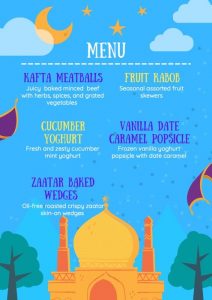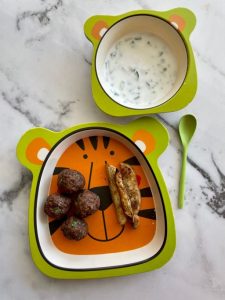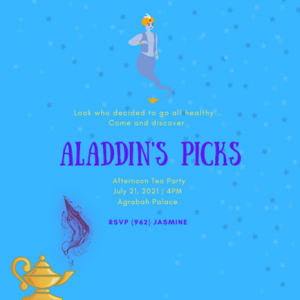Middle Eastern Style Afternoon Tea for Children

Afternoon tea is very common in Middle Eastern culture for both children and adults. It is an amazing way of gathering family and friends over some pleasant food and company. There is no reason for afternoon teas to be unhealthy. They can easily be enjoyed without crushing our diets into pieces.

The beauty of Middle Eastern food is that it can be switched around to suit a healthy lifestyle. Most importantly, afternoon tea can be used as a means to improve the children’s diets and help them get the nutrients they require for their growth and development.
Middle Eastern food is sometimes viewed as greasy and fattening. However, it is usually very nutritious and well balanced, and recipes can always be modified the way you want. For example, cheese rolls, kibbeh, falafel, eggplant, potato, cauliflower, and many other typical Middle Eastern dishes can all be baked instead of deep-fried for a healthier alternative with a lot less oil and calories. Moreover, fatty meat can always be substituted with lean meat, and desserts can be sweetened with dates instead of refined sugar.
My preferred Middle Eastern afternoon tea party is for children aged 4 to 11 years old. It is an Aladdin themed party that includes various dishes, one of them being Kafta Meatballs. To make it more nourishing, I have incorporated vegetables such as grated carrots and chopped spinach into the beef mixture. They’re so well integrated and small that the children can’t even tell they’re there! It doesn’t necessarily have to be carrots and spinach; it can be any vegetable based on seasonal availability or simply what you have in the fridge. These juicy meatballs will provide children with the essential protein to grow and develop.

What’s more, beef and spinach are excellent sources of iron. Meat also contains zinc, vitamins B12 and B6. Carrots contain beta-carotene, which converts into vitamin A in the body; vitamin A is essential to maintain our vision and contributes to iron metabolism. Both spinach and carrots are rich in fibre and vitamin C, contributing to the absorption of iron across the gut wall. Iron and calcium are indispensable to support children’s growth, especially at age 11, when puberty starts and their needs for these nutrients increase.
The Kafta Meatballs work beautifully with the following afternoon tea recipe: Cucumber Yoghurt Dip. A refreshing yoghurt dip comprising cucumber, fresh mint, and lemon zest for that nice lemony kick we all crave. Dairy is essential for this age group (4 to 11) because it contains calcium vital for children’s bone, teeth, and muscle development.
The next one is a winner: Baked Zaatar (thyme) Wedges. A delicious carbohydrate-based dish that also works remarkably with Kafta and dip. Crispy and oil-free potato wedges with Middle Eastern thyme seasoning. Carbohydrates are necessary for children as they are the primary and preferred energy source. Many children are active and energetic; therefore, they require a good amount of energy intake to expend.

Dates are nature’s sugar, filled with fibre, antioxidants, and vitamin C. Try this ultimate dessert sweetened with dates: Vanilla Date Caramel Popsicle with crunchy almonds. Creamy yoghurt base, chewy and sweet caramelly date chunks, and crunchy almond bits to top it off. Medjool dates are originally Moroccan but are now grown worldwide. They can be stored in the refrigerator for up to 6 months and remain fresh and nutrient-dense. They are perfect for afternoon tea when our sweet tooth sneaks in.
Fruits and vegetables are no doubt essential in everyone’s life. They’re high in fibre, helping maintain a healthy gut and reduce constipation and bowel cancer risk. Children are recommended to eat five portions of various fruits and vegetables a day for a healthy and balanced diet. So, I’ve decided to make Fruit Kabobs as a fun way of integrating fruits into the kids’ diets and trying to reach that target unconsciously. I’ve used strawberries, grapes, and melon in my recipe, which are sources of vitamin K and anthocyanin antioxidants, and peach, which is a source of antioxidants and carotenoids that protect against certain diseases. All of these fruits are full of vitamin C as well.
Middle Eastern Afternoon tea is truly a fun time with so much to discover and the perfect opportunity to value the culture and what it has to offer. It is also comforting to know that it can be appreciated in a healthy and not destructive way.
Written by Serena Ammache, Student Nutritionist
© 2021 The Caroline Walker Trust
